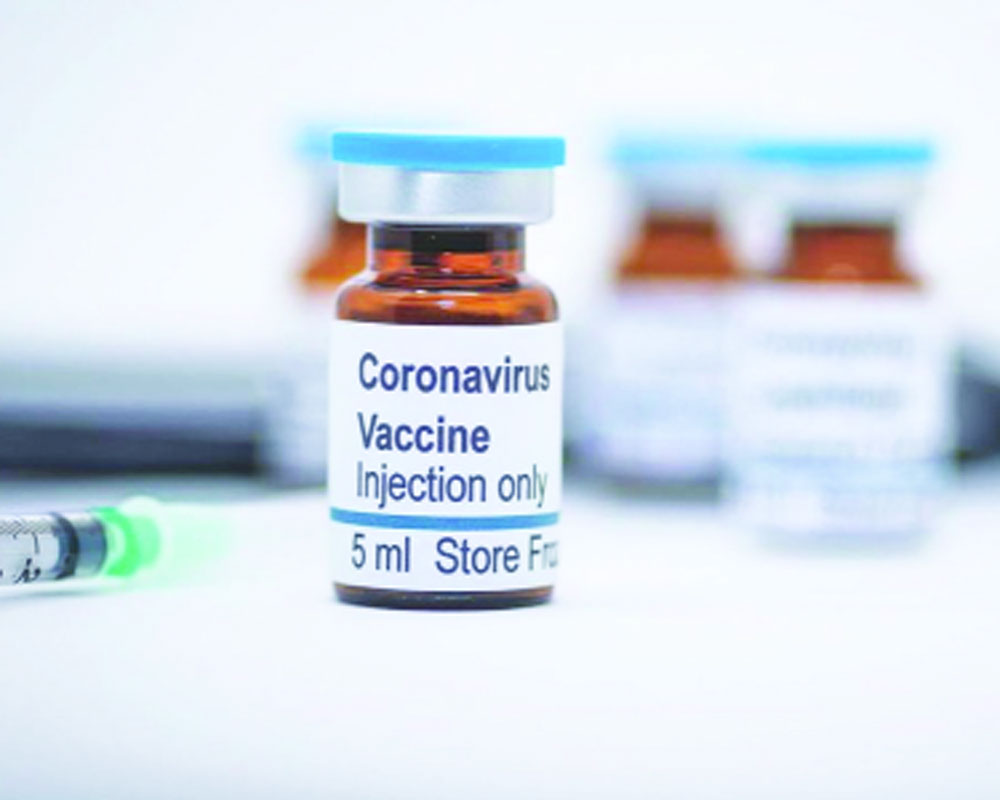As producer of 60 per cent of the world’s vaccines, India could become the production hub for an antidote to the virus
Months into the pandemic, humanity still seems to be in a tailspin. Given this gloom and doom scenario, it is but natural that mankind should look towards the scientific community to find a vaccine or drug to cure/combat the deadly virus at the earliest. Till now, there is no formal vaccine but there are many positive developments. For the first time, a multi-lateral and cooperative initiative is on across the world to find an antidote. Clinical trials are under way in many countries and some have reported positive progress. Normally drug trials take years but researchers around the world are working overtime to beat the clock. Not only that, in a first, they are sharing updates and expertise. India is part of several collaborative projects. In the UK, pharmaceutical giant AstraZeneca is on track to manufacture 100 million doses of vaccine for the entire world. The vaccine developed at Oxford University is undergoing testing right now and if successful, its large-scale production can begin and be available as early as September. Pharmaceutical firms Johnson & Johnson, Sanofi and Pfizer are at it, too. Scientists are also pushing to develop treatments to slow down the virus and some of the earliest will most likely be drugs already approved for other conditions, or those which have been tested on other viruses. We already know about chloroquine and remdesivir. The US, Israel and Germany are working on antibody drugs and China itself is now claiming a drug to cure the disease and even get short-term immunity. There is also talk of “human challenge trial” that scientists say could speed up the vaccine clinical trials and give us hope earlier than ever. The encouraging part is that even though there are no plans for this kind of study in the US as yet, over 16,000 people in over 100 nations have volunteered to participate in trials. The WHO has already released ethical guidelines to help scientists navigate rights issues. There’s history: Unscrupulous human trials have unsuspectingly been tried in countries where lives are cheap, Africa being the prime target of pharma majors over the years. So this should not become a new bio war.
However, the worrying part is that once a successful anti-Corona vaccine or drug is found, the politics of marketing it for economic gains and domination of nations that don’t have it will begin. Already stocks of pharma majors involved in vaccine development have almost tripled in value. As usual, the powerful and rich nations will put their interests over those of developing nations where access to vital drugs and vaccines is a perennial issue. How real the fear is of countries putting their economic and social interests ahead of global unity can be gauged from the fact that the WHO, German Chancellor Angela Merkel and French President Emmanuel Macron recently called for fair distribution of vaccines. The Coalition for Epidemic Preparedness Innovations (CEPI), an Oslo-based group that’s funding numerous Coronavirus vaccines, sees a way out of this through advance market commitments where donors promise funds to guarantee the price of vaccines once they have been developed. CEPI is talking with other organisations, including the World Bank, which is exploring how to set up such agreements. While a vaccine is a crucial part of the exit strategy, the world lacks a global system for managing its distribution in a crisis. It is time we set that up also along with our efforts to look for a cure. For politics is the reason why diseases such as HIV and ebola persist because of unequal access to therapies and drugs, something which activists are still fighting for. Some world leaders of developing countries have signed a petition demanding that all vaccines, treatments and tests be made patent-free, distributed fairly and made available to all people, in all countries, free of charge. They even called for mandatory worldwide sharing of all COVID-19 related knowledge, data and technologies with a pool of COVID-19 licences freely available to all countries. Even assuming that privileged nations with a solution become big-hearted enough overnight, mass production will still be a challenge as building capacities for a rollout such as this is a humongous task for poorer nations. Of course, India has a distinct advantage here producing as it does 60 per cent of the world’s vaccines and accounting for 60-80 per cent of the United Nations’ annual vaccine procurement. Our home-grown companies have also helped over the years to distribute vaccines to the world. So it could become the hub of a production line and claim its place at the forefront of providing an antidote to COVID-19.


























